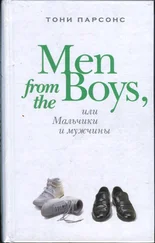“Mind telling me what you’re doing with that?” his father asked. “You can take it with you, alright? You can throw it into the woods, you hear me? I don’t ever want to see it again!”
I was playing with the shotgun. It went off. It would be the prosecutor’s word against mine. And who wants to kill his own father? And why? They would let him off precisely because it was his father.
What difference is there between any old guy and your father? Why should it be any less natural to want to blow your father away? Children have power over their parents, because children are the only ones who know the truth about them. They have a lot of information — not only genetic — they have knowledge, they know better than anyone what’s going on inside their parents. It’s not parents who know their children — parents know their kids through themselves, like a replica, not an original, and anyway, they’ve gotten too old, they’re muddled up, can’t keep things straight — it’s the children who know their parents: they have inherited the secret codes, the incriminating information, the definitive proof.
If he left the shotgun on the table for his father, was there any possibility that he would use it? None. His father had always known where the shotgun was. Miqui put on the safety, covered it with his jacket, and left the apartment. As he went down the stairs — there was still time to go back — an embolism started to form in his brain, the pool of blood that would have emerged from his father’s pajamas; blood that spread over the floor, so clean he could see himself in it, blood of his blood drawn in blood, father and son, each mirroring the other.
The truck was waiting for him at the back of the lumber warehouse. He jumped into the cab, put the shotgun down on the seat beside him, started the engine, and went out onto the street with the feeling that he was opening tunnels with the nose of his truck.
He floated over life’s miseries. He could see abandoned yards behind the fences, with yellow grass and pools covered with blue tarps waiting for summer. He could see into the houses through their windows and searched among the shadows for the silhouette of a married woman, welcoming in her nest. He extended his hand and touched the cold metal of the shotgun, gave it his warmth, made it his, real, sensitive, and powerful as an erection. He was against emasculated life: only discomfort and discord opened your eyes, you had to set up a disconnect with the world if you didn’t have one, a personality that allowed you to separate yourself so you could see it. But you also had to have the courage to accept the world, accept the bribe of light-filled days like today. Days when you pull back the curtains and the world is fucking awesome. Pull back the curtains and find it crystal clear, set up perfectly for you to live in, all of it in perfect harmony with you.
He had a CD of romantic ballads, Celine Dion, R.E.M., Mariah Carey, songs to get you in the mood that he’d downloaded a few years back, the music of the moments that gave life meaning. He put it on and imagined himself the day before, the truck seen from the heavens like in a film, the bird’s-eye view of a boat transporting bales of hay, a merchant ship with its deck covered in golden containers, big gold ingots crossing the smooth sea of the fields of Vidreres. Every day was harder, every day it cost him more to fill the tank, it was true, but most of the other truckers had it worse; he had seen it coming and had come up with a plan in time, printing up some cards and giving them out before business was a total bust: MIQUEL TRUCKING / TRANSPORT ALL TYPES. He had to put up with his father, but it could be a lot worse. His father had stagnated, but he’d been saved by mixing it up; with Ahmed, anytime they could, they alternated another trip to the construction site with some other kind of transport job: a piano for a promoter, some friend of a friend moving houses, the kind of jobs that at the time were of no interest to the construction truckers, who would only take them on for exorbitant sums. He’d gotten clients by handing out cards and posting ads on the Internet, and so now he could just as easily be asked to transport refrigerators for a store as five hundred folding chairs for an event, six tons of dirt, dead trees and shrubs cleared out of a garden, a few hundred boxes of potatoes, a load of hay bales, or a small boat.
He wasn’t the only one who suffered attacks of optimism. In recent months, balconies and windows had filled with independence flags, and the local center-right and center-left governments had hoisted Catalan flags at the traffic circles leading into their towns. He saw them constantly in his truck, some bright and new and others already faded by sun and rain. The cowardly Catalans were now lifting their heads, counting each other, and discovering there were enough. It’s not that they’d gotten any braver: the enemy was off his game. They pointed each other out, recognized each other. For every real estate agency or bank that closed, a half-dozen independentist flags appeared in windows and on balconies. Near every flag was a sign or two that read FOR SALE. Apartments for sale. Commercial spaces, industrial warehouses. The whole country for sale, like a whore.
They consoled themselves by hanging up flags; he knew a few people who were trapped by their mortgages, title-holders of apartments filled with useless rooms, owners of second homes they’d never pay off in towns they’d only been to two or three times in their lives. They couldn’t visit their properties because they couldn’t afford the gas. For ten years everybody was rich. What a scam. Four bricks slapped together on any open patch of ground was the business of the century. There was some for everybody. You walked over diamond mines. People bought apartments like they were buying shoes — every street had a real estate agency. Everything was a great opportunity. You found brochures with residential offerings at the hairdressers’, in bars, in dentists’ waiting rooms, and in public bathrooms. The local governments kept enlarging the area zoned for construction, everyone was lining their pockets. Miqui could do seven trips a day carrying construction materials. Maçanet, Sils, Vidreres, Riudarenes, Santa Coloma de Farners, big towns inland, this armpit of the world was filled with cranes, giant crosses for the crucifixion no one was expecting. The politicians came out on TV to say that everything was going gangbusters. Buy! Get into debt! The Catalan president, a socialist, when everything was already starting to crumble, still kept it up: Buy! Spend! What bastards. It was part of the business. Now, along the road you saw the last construction projects, stopped. The cranes still there for a few months before they started to take them down, whether or not the buildings were finished. There wasn’t a single one left. Just construction sites. Concrete skeletons. Abandoned streets with sidewalks, streetlamps, and trash cans, lots ready for houses that would never be built. Housing developments in the middle of the woods that would be covered over by vegetation like prehistoric cities. Houses and apartments for sale on the one hand, people evicted on the other. Young people living with their parents or emigrating. A real model society. And now they were talking about independence, now that they’d gone bankrupt.
Who had set all this up? Passing through the square he saw retirees stooped over golden pétanque balls, the lines they made etching tangled squiggles. Selfish old men…with their sun hats, they lived the same lives as the retired Germans who came here to live like kings while our young people had to emigrate to Germany to work in their Nazi factories. Only the old people were left. Buses filled with teenagers set off for Mindelheim, Dresden, and Frankfurt; they signed agreements to deport kids for professional training. They would never return. It was for the young people’s own good, according to their parents and grandparents, but the truth was their pensions depended on it. They went to say good-bye to their children and grandchildren at the bus, and then they came back to continue the game.
Читать дальше












